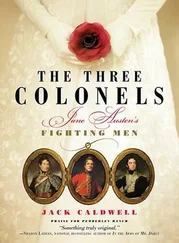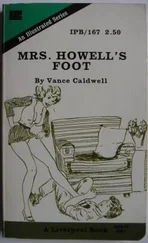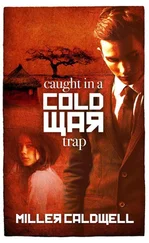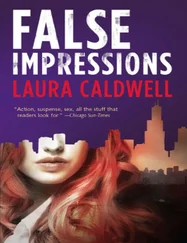The driver had more to tell her. ‘The police have been asked to trace another English woman who may have known the missing Miss Campbell. She might even be a suspect if Miss Campbell’s body is found murdered.’
‘Really?,’ Hilda said suddenly feeling cold. If they linked the two women, they might conclude that she had not drowned after all.
‘I can’t see how that will lead to anything. But you might want to tell Mr Sloan back at the embassy that there was a Miss Brackenridge who was in Lisbon but nobody is sure where she is now.’
‘I’ll certainly pass that on. Of course, they probably never knew each other. There are still a few English women around the city.’
The driver gave a smart salute and turned back towards the small airport building.
‘I think it’s time to take off,’ she said to Marco. ‘ Vamos , I think they say in this country.’
Hilda’s thoughts multiplied as the engines started. Perhaps she should have gone directly to the embassy. Had she been too cautious? There were now two missing English women, though nobody would be able to identify the mysterious Miss Brackenridge. She felt she had covered her tracks sufficiently well. Only time would tell.
They taxied to the end of the runway and she saw Marco give his instruments a final check. Then a force pinned her back in her seat, and moments later the nose of the plane rose and they were flying. Lisbon’s red pan tiled roofs shone in the afternoon sun. They contrasted with the white house walls and the speckled azure of the Atlantic. It was an artist’s dream.
She held the microphone close to her mouth. ‘Tell me, Marco, why is a Swiss pilot living in Lisbon flying me to Britain?’
‘I don’t live in Lisbon – my home is in Switzerland. I used to fly all over Europe with light cargo. When the war started, I was no longer free to continue. I was struggling to find work. I had delivered some cosmetics to Lisbon, and one of your embassy staff approached me at the airport. He told me they had a top-secret mission. Fly a woman to Britain. I guess that is you. So why did I do it? They paid me well. You seem to be a very precious cargo. Any more questions?’
‘Just one. How long will the flight be?’
‘We head straight north to the coast of southern Ireland, then sharp right to England. We do not want to get too near the English Channel or the French coast. I make it a three and a half hour flight, if the wind is in our favour.’
‘And if it’s not?’
‘It could delay us by as much as three-quarters of an hour. That is of course if we are not shot down.’
His tone was matter-of-fact, but the thought was a sobering one. The hair on the back of Hilda’s head seemed to lift from her scalp. ‘And the likelihood of that?’
‘I’m not a betting man. But then again, I will not fly if I do not think I will make a landing. One thing in our favour is the Swiss flag on our tailpiece. That should give any enemies pause for thought.’
‘So the money is good and you fly under a flag of convenience. I think you have the world at your fingertips,’ she said a little mischievously.
‘The flag of Switzerland is not for convenience. I have a wife and two daughters at home in Cevio. After this flight, I will fly back there and I will work there until the war is over. We will not be partisan. It would tear our country apart. We will not fight.’
He spoke stiffly, and she was afraid she had offended him. She fell quiet for a minute or two and then asked, ‘Cevio, near Lake Como isn’t it?’ She had a vague recollection of a school geography lesson many years ago.
‘No, Cevio is north of Lake Lugano.’
She did not know Switzerland as well as Germany.
The sandwich of Swiss cheese which Marco produced an hour or so later was enough to fill her after her substantial embassy breakfast. He passed a bottle of water over his shoulder and she thanked him.
There was more. He passed her a brown paper bag and, to her amazement, she found it contained three chocolate bars.
‘These are huge. I doubt if I could eat even one of them,’ she said.
‘Then keep them in your bag. A present from Switzerland,’ he replied with his cheerful grin back in place. She was glad to see he had forgiven her earlier faux pas.
She caught a glimpse of land, but it vanished quickly under the thickening cloud. She asked Marco where they were, and he told her they had just skirted the south coast of Ireland. By the time they had crossed the Irish Sea it was dark. There seemed to be a night blackout in force; there was not a single light visible in any direction.
‘How long now?’ she asked. Surely it could not be far. She began to wonder where she would sleep that night.
‘Not long. You can relax – we are over friendly land at last. We’ll be at Northolt in less than an hour.’
‘Northolt? Where’s that?’
‘Not far from London, to the north,’ he replied.
That hour crept by at snail’s pace. Hilda began to consider the possible repercussions of her year under the control of the Nazi secret services. What if no one believed her version of events? What if she becomes imprisoned? She was starting to wish she had never boarded this flight, had never left Peniche for that matter, perhaps. She could have happily lived on the cliff with Inka, sending occasional wrong coordinates to Berlin and claiming a faulty line. At least then, she would have been acting in no one’s interest, taking no body’s side. However, that would have had consequences beyond decency. Her thoughts were out of order and she knew it.
‘Ready for landing in two minutes,’ Marco announced all of a sudden, cutting into her tortuous thoughts.
She looked out of the side window. All she could see was darkness. The descent made her slightly dizzy, but at least there had been no flak or attack on their journey. Now she was home; she felt its pull, like a magnet, and suddenly she was ready to face the music of whichever tune was played.
The landing was bumpy. She felt the plane bounce a couple of times before the brakes slowed their progress, then the forward pull, restrained by the harness digging into her shoulders.
‘Well done,’ she said to Marco.
‘Not one of my finest landings. But we made it.’
A surge of relief shot through her. ‘So where will you go now? Back home to Switzerland?’
‘To Switzerland, yes, as I said. I’ll leave tomorrow night.’
‘Flying directly across Europe might be dangerous.’
‘I think so too. I’ll fly to Portugal, then east along the Mediterranean and then north to Switzerland. That should be safe.’ He turned to look at her. ‘And I have a parachute. I will refuel in Lisbon and see if I can find some more deliveries. None as interesting as you, I imagine,’ he laughed. ‘I don’t often carry passengers, and you have been the perfect one.’
She had much to thank him for. ‘I’ll be thinking of you tomorrow flying home,’ she said. ‘Good luck.’
He responded with a nod and a thumbs-up.
‘You did not tell me about the parachutes,’ she reminded him.
‘Parachutes? You mean parachute. I only have one. That’s why I didn’t tell you.’
She laughed loudly, slapping his back. She unclipped her leather helmet and safety harness. The hood drew back and she took a deep breath of cool British autumn air. It felt wonderful. The tension fell away from her shoulders and she felt a warm glow of something she could not quite identify. Perhaps it was a sense of familiarity, of being at home.
Marco climbed out and came to help her descend the short ladder backwards. She looked over her shoulder and saw a car approach from the terminal building. She picked up her bag as it pulled up beside her. The rear window was down.
Читать дальше












